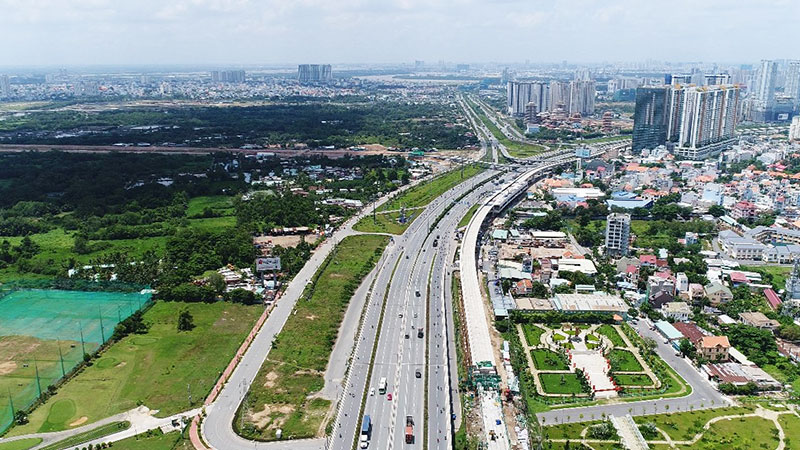Construction of the No.4 ring road to kick off in mid-2023
The aim is to ensure the completion of the ring road by 2026 and to put it into operation from 2027.
The authorities of Hanoi and neighboring cities/provinces in the Capital Zone responsible for the construction of the No.4 ring road are expected to complete the preparation by January 31, 2023 and begin works no later than June 30.
| Ring-road No.4 is set to create breakthroughs for development in Hanoi and neighboring cities/provinces. File photo |
Deputy Prime Minister Le Van Thanh gave the timeline in Government’s resolution No.106, to implement the National Assembly’s investment policy on the construction of the Ring-road No.4.
Under the resolution, the Government assigned the Chairman of the People’s Committee of Hanoi, Hung Yen, and Bac Ninh to approve sub-components of the projects in compliance with regulations on public investment.
In this regard, the Ministry of Construction would be responsible for reviewing the feasibility study report for the construction of urban roads in Hung Yen and Bac Ninh provinces.
The authorities of Hanoi would conduct a feasibility study on the construction of the expressway component, set to be financed under the public-private partnership mechanism.
In addition, leaders of the three cities/provinces would apply the direct-contracting method for consultant packages and other works on the reallocation of technical infrastructure, land requisition compensation, and resettlement for affected households from the state budget funds in the 2022-2023 period.
“Three cities/provinces are held responsible for the progress, quality and efficiency of each component under their respective administration, preventing possible corruption and waste,” noted the resolution.
The aim is to ensure the completion of the ring road by 2026 and to put it into operation from 2027.
Ring road No.4 with a total length of 112.8 kilometers and covering a combined area of 1,341 hectares, would run through Hanoi (58.2 kilometers), Hung Yen (19.3 kilometers), and Bac Ninh (25.6 kilometers). Once completed, the project is expected to bolster provincial connectivity between Hanoi and the northern provinces in the capital area.
The total investment cost of the project is VND85.8 trillion ($3.7 billion), with VND41.8 trillion ($1.8 billion) for the 2021-2025 period sourced from the state budget. Of the total, Hanoi would contribute VND22.47 trillion ($967.2 million) from its local budget, Hung Yen VND1 trillion ($43 million), and Bac Ninh VND2 trillion ($86 million).
In the subsequent five years, the project funding would continue to be allocated VND14.5 trillion ($624.2 million), with Hanoi contributing VND4 trillion ($172 million), Hung Yen VND505 billion ($21.7 million), and Bac Ninh VND1.16 trillion ($50 million).
The private sector, meanwhile, is expected to fund VND29.4 trillion ($1.26 billion).












